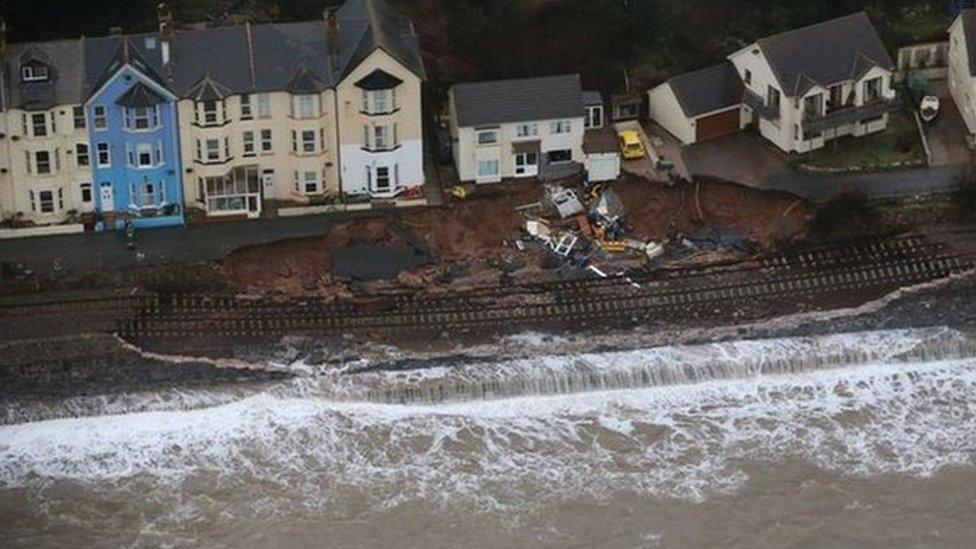Changing Dawlish Warren sea defences 'may have accelerated erosion'
- Published
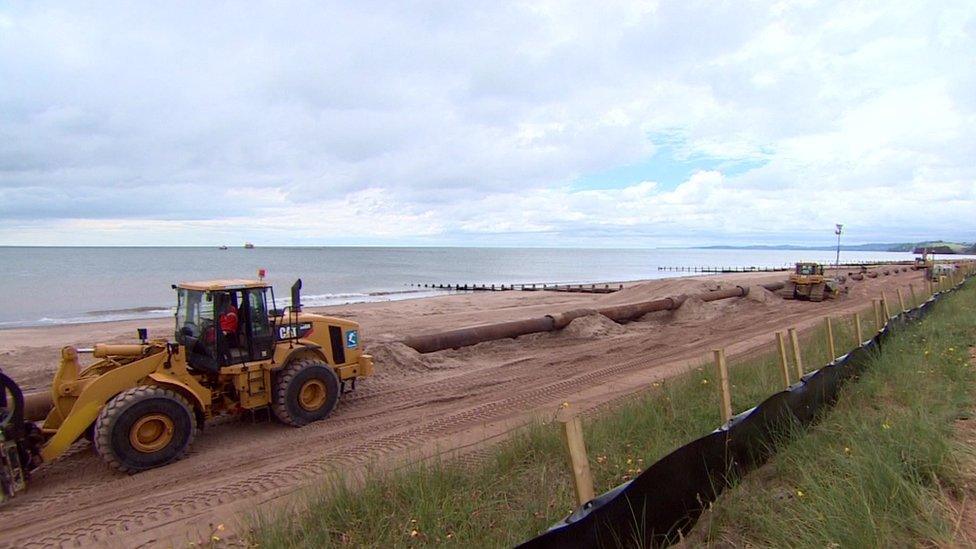
Temporary barriers have been put up to protect a section of the new defences exposed by recent stormy weather
The Environment Agency (EA) has admitted its decision to remove some hard sea defences may have accelerated erosion at Dawlish Warren in Devon.
In 2017, the EA replaced the hard rock defences with giant tubes filled with sand, known as a Geotube.
However, the recent stormy weather has left a section of the new defences exposed.
The EA has now installed temporary measures to protect the 460m (1,509ft) Geotube.
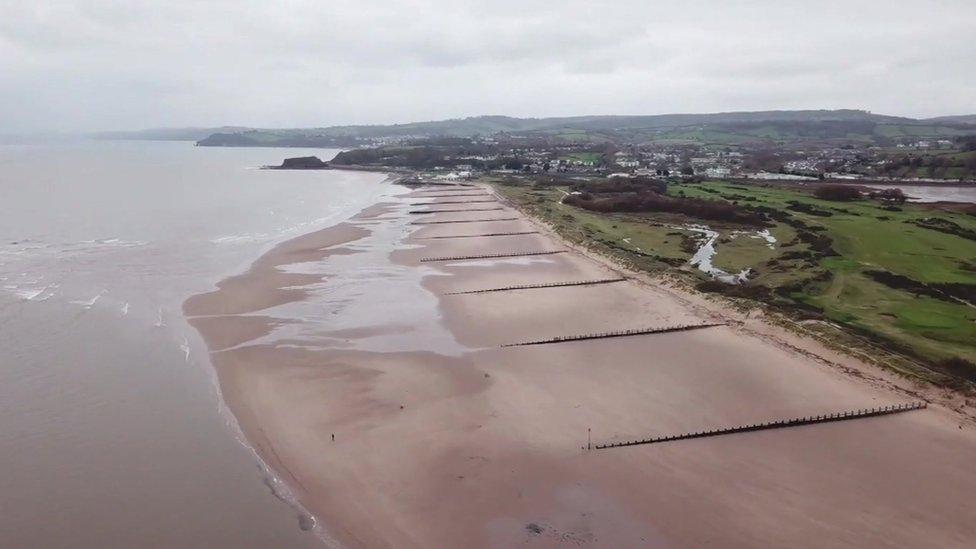
Dawlish Warren provides a natural barrier which protects the nearby villages and railway line
A nearby golf course said the situation had deteriorated since the metal baskets filled with rocks, called gabions, were removed.
Warren Golf Club manager John Langmead said he wished the original defences had been left in.
Dawlish Warren provides a natural breakwater which protects the Exe Estuary, nearby villages and main railway line from the sea.
The EA said it would keep a close eye on the tides and weather until a long-term solution was found.
It added it was legally obliged to remove the old hard flood defences, but its prediction models did not reflect the strength of recent winter storms.
The EA also said the scheme was designed to reduce flooding risk and damage to the railway line, as well as improve the local dune habitat.
Martin Davies, from the agency, said: "There weren't mistakes, the design was based on predictions which obviously we've established were incorrect."
"But the elements of the scheme that reduce flood risk to the wider estuary and locally were a success," he added.
- Published10 June 2019
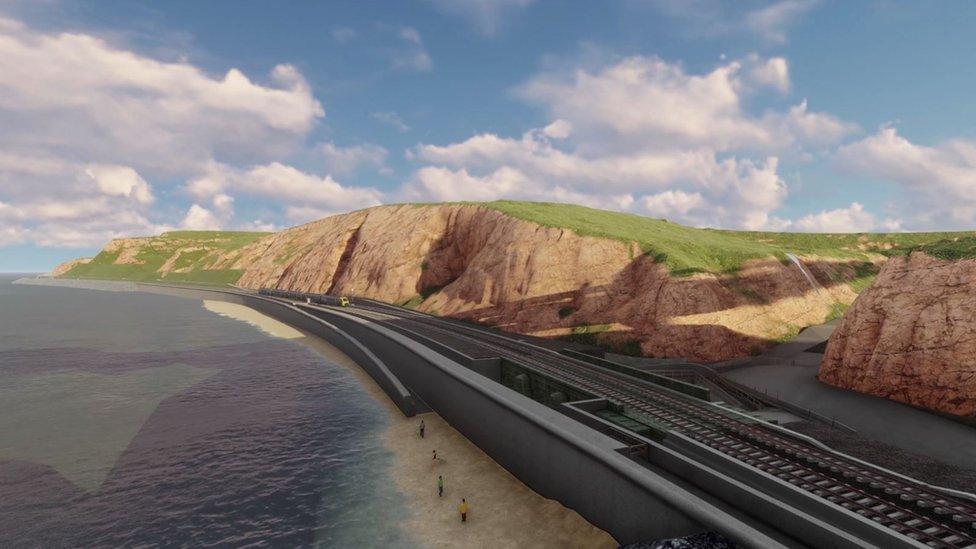
- Published9 November 2018
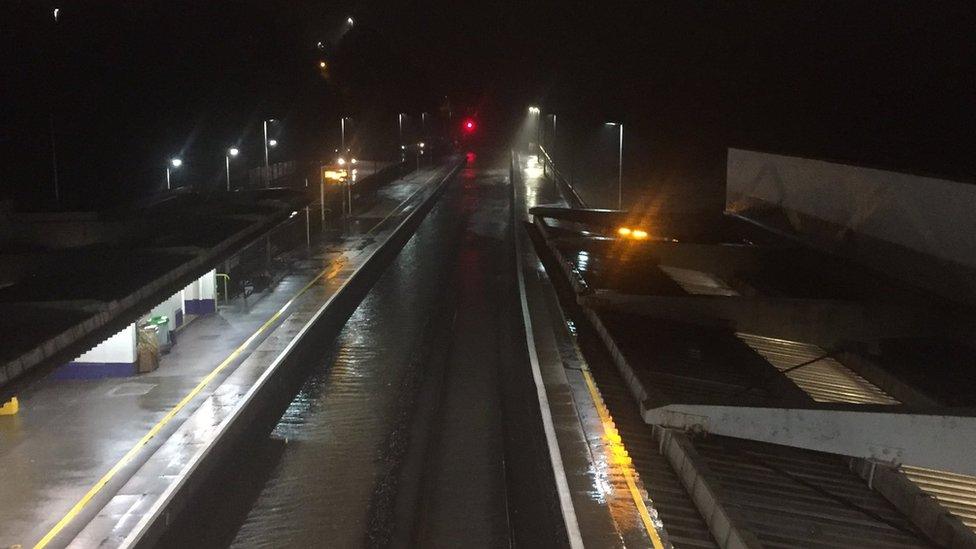
- Published17 November 2016
